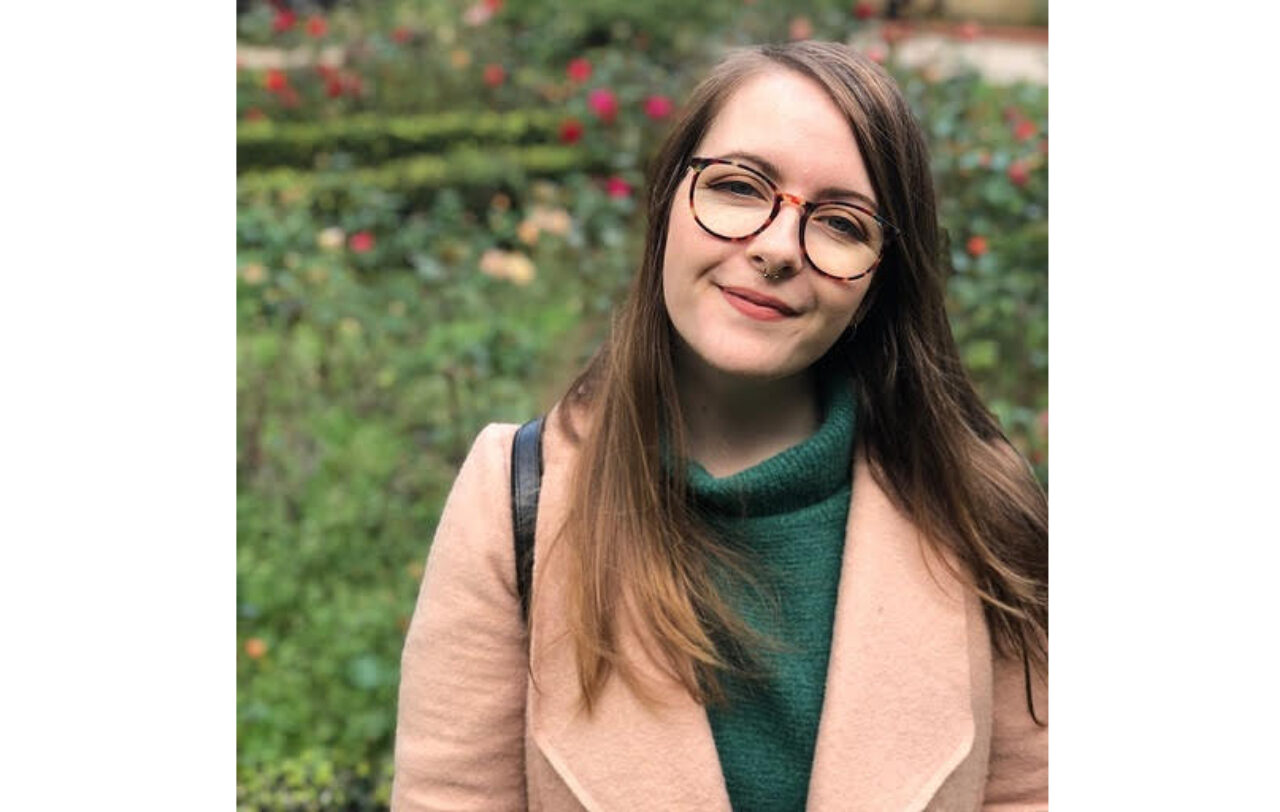‘Magnify’ Conference Draws International Presenters to Speak on Inclusive Design

Posted on | Updated
Founded by designer and ECU alum Claudia Hopkins, the multi-day event aims to share stories and ideas to “expand our knowledge about inclusive design and research.”
A new international conference aims to create community around inclusive design, and encourage broader engagement with professional practices that begin and end with social justice.
Titled Magnify: The Inclusive Design + Research Conference, the multi-day event was founded by designer and ECU alum founder Claudia Hopkins (BDes 2019).
“Often, at design conferences, there’ll be a few projects that emphasize inclusive design, but that focus isn’t always common to all of them,” Claudia tells me via video chat from her home in London, UK. “I thought it would be good to bring people together to see what’s happening in inclusive design around the world, and hold a space where we can try to have a spotlight just on that.”
Magnify, scheduled to take place from Oct. 5 - 7 and 12 - 14, is Claudia’s idea in action. The virtual conference will feature nearly 30 speakers from around the world, including close to a half dozen Emily Carr alums.
Designers Michelle Chan (BDes 2020), Tyler Hawkins (BDes 2020), Morgan Martino (BDes 2021) and Garima Sood (BDes 2021, and a current ECU Master of Design student) join the conference’s outstanding roster of global creative practitioners to speak on the ways inclusive design and accessibility practices inform their work. Meanwhile, designer Triet Pham (BDes 2020) created the branding and visual identity for the event; UX Researcher Sandra Han (BDes 2019) is assisting with Magnify’s social media and online engagement; and designer Kerem Dogurga (BDes 2019) was a member of the panel to evaluate submissions, ensuring that the conference’s broader aims and agenda were being met.

Claudia Hopkins.
The topic of designing for inclusivity is deep and wide, Claudia notes. With that in mind, Magnify is loosely organized to approach the subject from a few key angles, including looking at how inclusivity is practiced by individuals in professions outside of design; looking at how people can make small, incremental changes to their everyday work practices to move toward inclusivity stepwise, rather than by means of a huge overhaul; bringing together longtime champions of inclusive design to speak about effective strategic approaches for spurring change; and hearing from designers and other professionals who have experienced exclusion firsthand.
Claudia also hopes that attendees who may be newer to the idea of inclusive design will get a sense for how many facets there are to the practice. A common misconception, for instance, is that inclusivity is synonymous with accessibility.
“There are so many other sides to inclusive design; it really just depends on what the subject is, and looking at your problem space and seeing what are the power dynamics in that situation, and then how does all of that play out? By assessing the power dynamics, we can then determine who faces the most barriers and how we can ensure their needs are prioritized.” she says.
“Anytime your context shifts, who you are inclusive toward might change, or the greatest need might change. That’s also part of what we wanted to capture in the conference.”
Magnify’s mandate aligns closely with Claudia’s individual goals as a professional designer. In her role as interaction designer on the end-of-life care team at the UK-based Helix Centre’s Digital Health Innovation Lab (an organization she likens to Emily Carr’s Health Design Lab, where she worked as student researcher during her time at ECU), Claudia’s work includes finding ways to “decrease barriers for people accessing health care by using evidence-based and co-creative approaches.” Current projects include a digital resource to help friends and family members administer safe, quality palliative care to loved ones who wish to die at home but are unable to afford professional caregivers.
“With working projects like this one, I’m working to thread inclusive design through the process,” Claudia tells me. “So, making sure we think about users who may have a disability — how does that change how a person would use this platform? Or a person with low health literacy — how do we make the platform inclusive to people who aren’t accustomed to using this type of language? That’s my aim.”

It’s an aim that infuses the growing list of events at Magnify. Originally conceived as a two-day event, the workshops, talks and panels now span six days in total. The conference currently boasts more than 20 events, with further additions to be announced in coming weeks. Topics range from developing trauma-informed practices, to creating more equitable workplaces that allow women of colour to thrive, to a “nothing about us without us” approach to co-designing with and for people with disabilities.
For Claudia, this wide-ranging cross-section of approaches to inclusive design is precisely the point.
“There are all these different ways to really push for inclusive design in the workplace and in daily practice,” Claudia says. “Trying to learn from as many people out there as we can is really the goal.”
Read more about Magnify’s growing programme of events now, online. To purchase tickets for the virtual conference, visit the Magnify eventbrite site. Student pricing is available, as are other purchase options to match your budget.